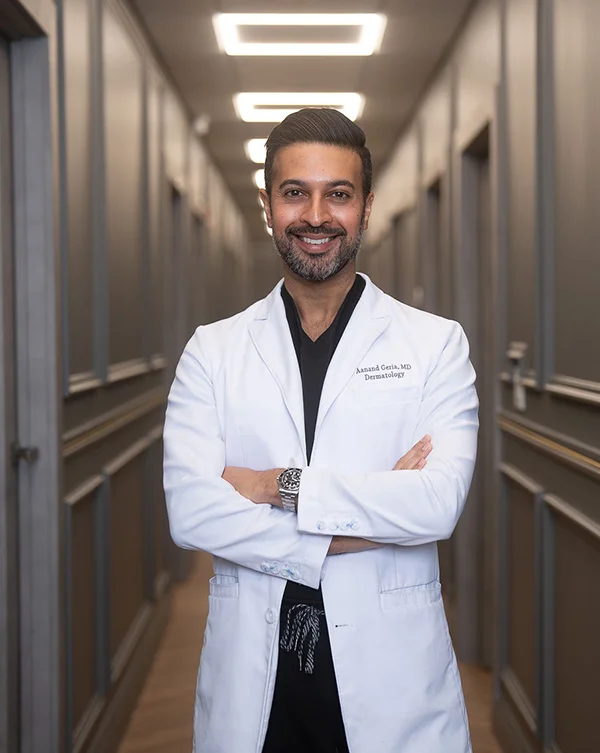What is Skin Cancer?
Skin cancer occurs when the growth of skin cells in an area occurs at an abnormally fast rate. This abnormal growth results in damage to the DNA that goes unrepaired, thus causing a mutation. The rapid multiplication of skin cells can lead to the formation of malignant tumors.
The three most common types of skin cancer are Basal cell carcinoma, Squamous cell carcinoma, and Melanoma. Identifying which type of skin cancer you have is crucial for proper treatment, and this can be diagnosed during a consultation.
As for the lesions themselves, they commonly come in the form of discolored bumps, swollen or bleeding sores, or moles that change size or shape. The characteristics of a cancerous lesion vary based on the type of skin cancer.
What causes Skin Cancer?
The biggest contributor to the formation of skin cancer is harmful levels of ultraviolet (UV) rays. This can either come from too much exposure to the sun or the overuse of tanning beds. UV rays essentially inflict damage on skin cells, which can heal most of the time. Too much damage over extended periods of time, however, can lead to cellular mutation. Skin cancer typically shows up on areas of the skin that regularly get exposed to the sun. This includes the following areas:
- Scalp
- Face
- Lips
- Ears
- Neck
- Chest
- Arms
- Hands
- Legs

What are common Skin Cancer treatments?
There are various methods that can be used to treat skin cancer, and some of these may require your dermatologist to refer you to a specialist. These techniques include:
- Topical treatments
- Chemotherapy
- Radiotherapy
- Immunotherapy
- Surgery
Patients should seek out treatment for skin cancer as early as possible. Late-stage skin cancer can spread to the bones, lymph nodes, and other organs. If the issue is caught early enough, however, patients will be able to visit a dermatologist to get painless treatment with virtually no scarring.
Skin Cancer Treatment recovery
Depending on the type of treatment you have chosen, your recovery path will vary.
For surgery, most wounds do heal within a few weeks, however, healing will continue for many weeks or months as incision lines continue to improve.
It may take a year or more following a given procedure for incision lines to refine and fade to some degree. In some cases, secondary procedures may be required to complete the procedure.
It is advised to stay out of sunlight as sun exposure to healing wounds may result in irregular pigmentation and scars that can become raised, red, or dark. Sun exposure may increase the risk of the development of skin cancer in another region of your body.
Why choose us?
Why choose
Geria Dermatology?
Our founder, Aanand N. Geria, MD FAAD is a board-certified dermatologist specializing in medical, surgical, and cosmetic dermatology. Dr. Geria is a Fellow of the American Academy of Dermatology (AAD), a Diplomate of the American Board of Dermatology (ABD), a member of the American Society of Dermatologic Surgery (ASDS), New Jersey Dermatological Society (DSNJ), and Skin of Color Society, and has frequently made the Castle Connolly “Top Doctors” list since 2018.
Our Dermatologists and talented team of clinicians have undergone extensive training and developed the necessary skills to treat patients of all backgrounds. Our goal is to exceed our patients’ expectations while establishing ourselves as the premier skin cancer treatment practice in the New Jersey area.


Contact us
Dedicated To Exceptional Services
Patients can contact Geria Dermatology to schedule a consultation and learn more about our effective treatment options for skin cancer in New Jersey. We will be happy to perform a skin evaluation and recommend the proper course of action.
